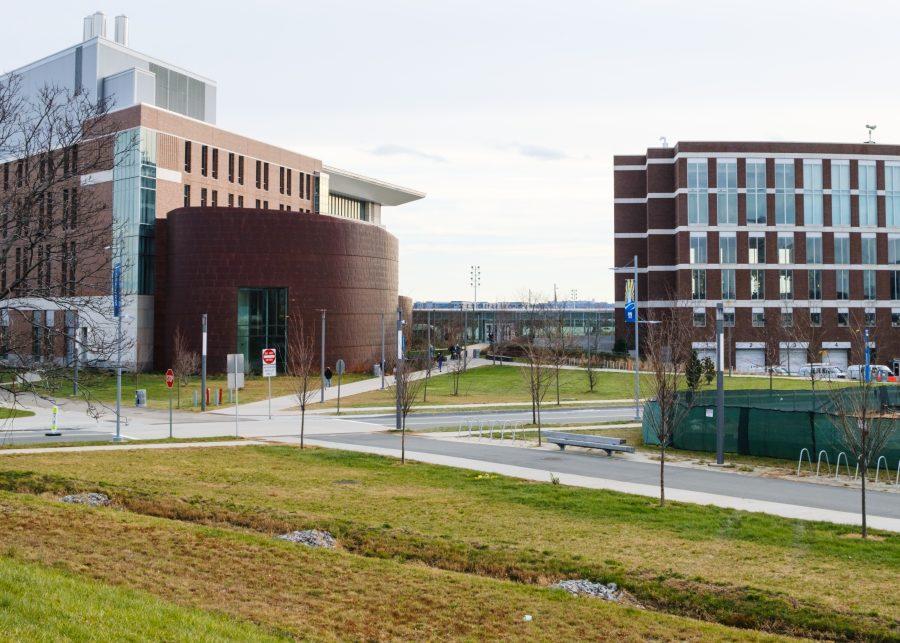The Brazilian poet Haraldo de Campos writes that the work of shifting from one language to another is not that of translation, but of transcriação, or transcreation. “To look at the language, break it down in its sounds and meanings, reflect on how to recreate the idea of the words in a new language, and then do it,” is how Professor Isabel Gómez described this process of transcreation to her students in “LATAM 160: Building Language Justice: Translation, Migration, and Linguistic Human Rights.” Funded by the Mellon Foundation, this course provides students with the opportunity to creatively display the personal, social and historical layers of themselves and their languages. This innovative learning model was captured in the transcreated poem activity they responded to as a class.
Students read three poems from “Kitchen Table Translation,” a 2017 anthology edited by Madhu Kaza and written by poets who are migrants to the U.S. In response to the reading, they were asked to transcreate one of the poems by personalizing, localizing and recreating the aesthetic procedure of the poet in a way that reflects on the challenges of language and names. Those who transcreated “It’s complicated keeping track of words” by Elena Rivera were asked to pay attention to the structure of the poem and its moments of error and confusion, and then reflect on where they have experienced error and confusion. Those who transcreated “Nomenclature, Miigaadiwin, a Forked Tongue” by Ada Couchois Duncan were asked to pay attention to the structure of key words from the Ojibwe language, and then reflect on key words in their own language. Those who transcreated Cecilia Vicuña’s poem about her name were asked to pay attention to how she investigates the meanings of her name, and then do their own research in order to reflect on their own name.
In their work, students demonstrated the connections between their personal identities and language justice, defined in the syllabus as “the right everyone has to communicate in the language in which we feel most comfortable” (Antena Collective). Student Rouaa transcreated Vicuña’s poem, writing that in English, her name is “missing letters and accents / denying me my true identity.” She explained that Arabic contains numerous accents that aren’t translatable to English, so an English speaker’s pronunciation of her name feels incomplete. Student Ferlisa added that she finds it interesting how people pronounce her name wrong even after she’s just pronounced it to them correctly, making a translation in their minds. Student Rosa wrote her poem in Spanish and then translated it to English to emphasize the necessity of her bilinguality. “I learned one language from ancient playwrights, the other to survive the schoolyard,” she quoted from Rivera’s poem. Student Lizmery echoed this poignant language in her poem: “Here I am living in a field of violence and a brick building…living around a field of azure and a castle of silver.” The poems written and discussed by students demonstrate how language captures the history of translation, exile, displacement, war, gender and ethnicity, and how those experiences have left their mark on students in the present.
The students’ work also provided an opportunity to talk about the translation studies focus of the course, defined in the syllabus as an interdisciplinary scholarly field that analyzes the theory, practice and context of translation. Professor Gómez called attention to the diacritical marks that lose visibility in English, such as the accent in her last name or the diaeresis and umlaut in other languages (ü), and she asked students to consider how we can continue to make these marks more present in English. This meets the course objective of confronting and resisting the hegemony of the English language and recognizes the resurgence of the “English only” movement as a form of white supremacy. Student Christian wrote in his poem about this idea of being in-between languages with all its losses and gains, that it “opens up a new window,” yet he “can never fully indulge in one language.” Professor Gómez linked this idea to the middle state that is researched in linguistics and sociology and its connection to third-culture and third-space studies. This follows the course objective of examining art that is created in between multiple languages. The context and limitations of translation were also demonstrated in student Ellenise’s transcreation of Duncan’s poem. She focused on the specific idea and mood conveyed in the Portuguese word “morabeza,” which holds weight for Cape Verdeans, yet that emotion cannot be translated outside of its language and cultural context. These theoretical and conceptual discussions prepare students for the critical thinking and translation literacy they will need to understand language’s importance in inclusivity.
The culmination of the transcreated poem activity is the Translation Lab at the end of the semester, when students creatively experiment with translating a literary text from one language to another (interlingual), between two different Englishes (intralingual), or between two sign systems (intersemiotic). The Lab culminates with a post to a class blog, including a brief analytical introduction and an image that corresponds with their translation. Student Rosa did an interlingual translation of passages from “Clap When You Land” by Elizabeth Acevedo because of the way the book corresponds with her memories of growing up in the Dominican Republic. Student Lizmery did an interlingual translation of two Rupi Kaur poems from “The Sun and Her Flowers“ that focus on themes of language justice. Through these assignments, and the course as a whole, students are able to take the personal aspects of themselves, such as their name, a poem, a literary translation or their heritage and language, and use it as a window into the translation and transcreation that is happening globally in activism, migration and language policy as it shifts with the changing world.





















































